The Great Self Re-Evaluation: Discovering Modern Minimalism
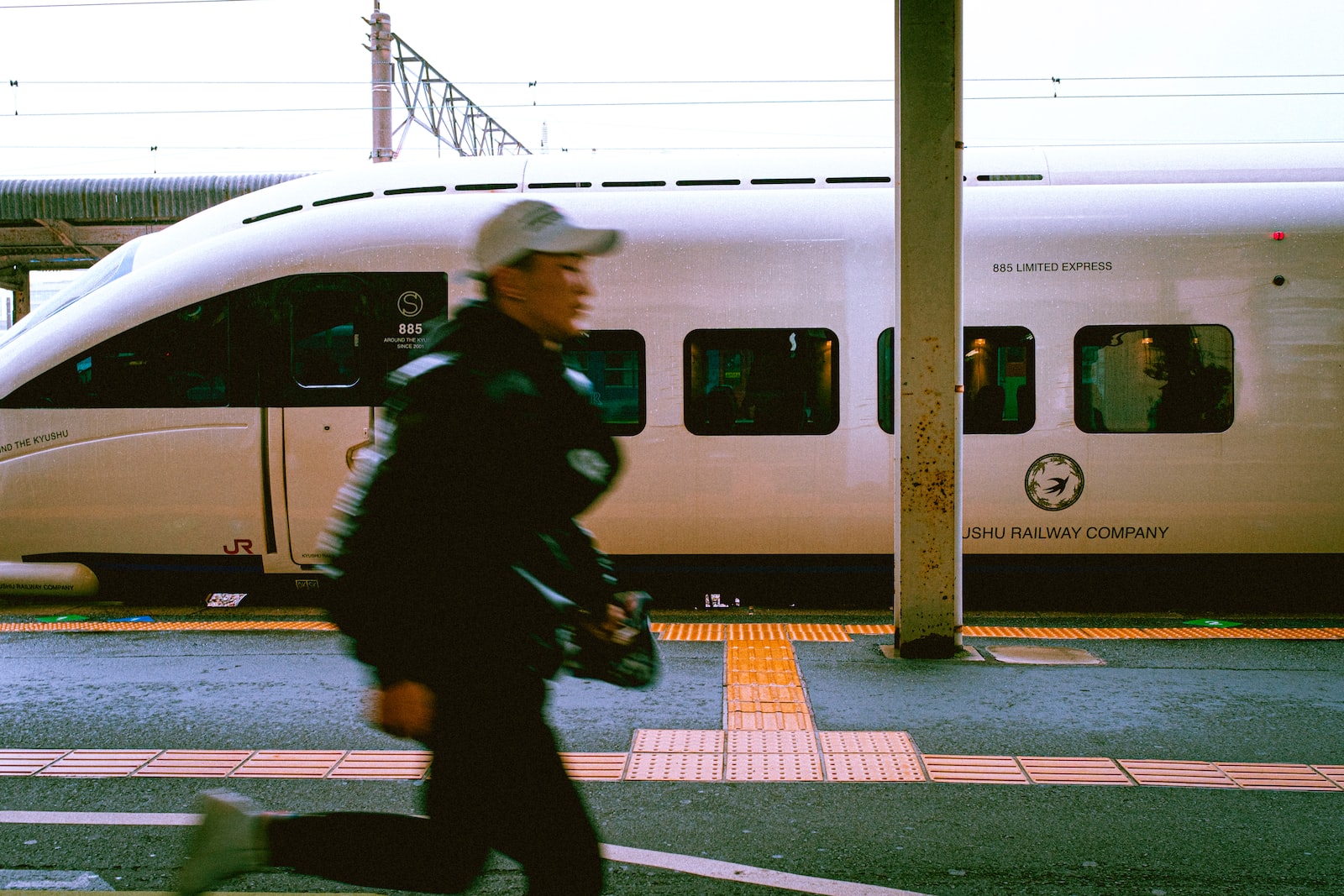
In 2015, the word “Minimalist” began to attract attention in Japan as this word was nominated for the New Word/Buzzword Awards, an annual contest in Japan. In 2017, the word became increasingly popular internationally after Fumio Sasaki, a well-known Japanese Minimalist, published a book titled, Goodbye, Things: The New Japanese Minimalism. Sasaki’s lifestyle book was published in English and uniquely became a reverse import back to Japan from the States after the book became a best-selling phenomenon elsewhere.
Before the development of the Minimalist mindset, many Japanese spent excessive hours/days for work and believed that money could buy happiness. However, in 2011, there was a significant earthquake in Japan, and afterwards; many people realized money and material things alone cannot realistically bring true happiness. Many decided to donate their belongings such as clothing, shoes, books, and furniture to thrift stores and to some organizations. They also offloaded items by selling them online or just giving them away to friends as people realized that owning a lot of things actually caused more stress and distraction. People typically have numerous clothing items in their closets, but in reality, only 5 or 6 of the items are worn on a regular basis. Moreover, the time spent on choosing outfits every day seemed wasteful and caused further anxiety.
With the advent of sharing services, such as Airbnb, Uber, and WeWork, the concept of sharing and outsourcing virtually everything grew, de-emphasizing purchasing for direct ownership. With our mobile phone, we can obtain and do so many things we need quickly at the touch of our fingertips.
Minimalism not only re-evaluates material things but also personal relationships. In the past two years, our community of friends naturally became estranged because we couldn’t go out and meet due to COVID‑19. On the other hand, it also allowed us to re-evaluate and embrace our healthiest of friendships and relationships. It became a natural opportunity for us to know and recognize who our truly important friends are, leaving the strongest friendships intact. We didn’t exclude friends on purpose, however we were also fortunate enough to have the opportunity to bond with our closest ones even more. By organizing and prioritizing our relationships, we have actually more time to do what we wanted and with who we really wanted. Thus, one’s happiness level actually increased with fewer negative thoughts.
Japanese minimalist methodologies provide guidance to people who want to stop living under peer pressure and who try not to feel the heavy burden of parental expectations. Not only did people start to let go of material things, but they threw away their fears of judgment by others.
The Japanese minimalists strive to only keep what they need. By doing so, through the process of knowing, accepting, and understanding who they are, they will be able to live a rich and fruitful life with less material things. Many people say that as a result of finding happiness beyond material possessions, people will be able to truly value oneself and others.
Many people in Japan naturally have an island mentality. This frame of mind tends to bring fear of the unknown, including different types of people and foreign mannerisms due their isolation and prejudices. In addition, Japan is a collectivist society, which is the principle of giving priority to a group over each individual. Collectivist cultures have disciplined and cooperative work forces. For that reason, some people are mentally unwell because they feel anxious about what other people think of them. This is especially the case for the younger generation who decide to wear clothes, buy belongings, and maintain hairstyles that are very similar with everyone else to fit in. This is a common tactic to avoid being criticized by others.
Say Goodbye Things That Do Not Bring You True Joy
Marie Kondo, also known as KonMari, has made a name for herself internationally, thanks to her famous book, Spark Joy: An Illustrated Master Class on the Art of Organizing and Tidying Up. As you may know, the most basic rule of this method is the idea that you must only keep and make space for items that “spark joy”- items that make you feel warm and positive. If something or someone drags you down or doesn’t bring you joy, whether it’s a habit, food, item, or a person, simply toss it out. There is no compromise for the sake of moderation. We know it is actually harder to completely break bad habits in our lives rather than occasionally dealing with it when they pop up. However, if we are able to completely rid ourselves of these negative things, we will never have to think about them again.
The concept of being realistic, not idealistic, is important. One must figure out what drains your energy. For example, one of our members defiantly held on to her high-fashion brand jackets and shoes although she didn’t wear them in over 10 years! She held on to them because she didn’t want to leave those past memories behind. A grey jacket was gift to her as a college graduation gift from her parents. She had bought iconic red soles shoes as a gift to herself when she got promoted. Those things bring her all good memories and brought a spark joy for approximately 5 seconds. But then the feeling turned to guilt and self-doubt because she lost her father recently, and she left the company because of her difficult boss. Which of these items do you think she discarded? We’re all humans and have our weaknesses, but she realized that she holds those past memories through these physical items. She says “I was living in the past. After finally getting rid of these things, I started to live in the present.”
On the other hand, Japanese people usually say Mottainai. It is a Japanese traditional concept, which means don’t be wasteful and every little thing has a soul. Mottainai is all about reusing, repurposing, and repairing. Between sparking joy and Mottainai, we don’t just throw things out in the trash, but rather, we prefer bringing it be recycled or re-purposed such as cutting up old T-shirts for cleaning cloths to replace sponges or paper towels.
Enjoy ‘Ma’ – A Love of Emptiness
Ma is the Japanese concept means a celebration of not things, but the space between them. An example of this is when you see some Japanese art which has an emptiness in the canvas, that’s Ma. In fact, it can be found in almost every aspect of Japanese life, from interior design, architecture, and garden design to Haiku (Japanese poem), and ikebana (Japanese flower arrangements).
Ma highlights, focuses on, and expands the space in which there is nothing or little next to it. The things we imagine to keep there get cherished. In a home, like in life, where there are too many things, it’s hard for us to value things when we live in the richness of choices. Try to think what is not there is just as important, if not more, than what is there.

Pine Trees by Hasegawa Tōhaku (Japanese, 1539–1610). The painting has been designated as National Treasure in the paintings category.
Goodbye Impulse Buying: Replacing Mindless Shopping with Mindful Spending
Analogous to the artistic usage of empty space, we also love physical space and the ideal use of it. Japanese people have their own state of Danshari which is a Japanese concept meaning to declutter. In Japanese, the word Danshari – 断捨離, the ideograms mean 断=refuse, 捨=dispose, and 離=separate.
When we Refuse, we need critical thinking rather than self-deprivation. It represents our refusal to carry things into our life such as impulsive purchases, or taking sad little giveaways or meaningless objects. Next is Dispose, which is almost the same as the “sparking joy” methodology. Look around your living spaces carefully, and if an item isn’t valued physically or sentimentally important, it’s time to let it go. Last is Separate which is most difficult part of all because all humans feel attached to their possessions. We try to detach ourselves from those deeply rooted ties and learn to see ourselves as separate entities, apart from our memories or feelings.
The easiest way to start decluttering is 1. Take before photos of a small area. 2. View the photos as a first-time visitor & create a decluttering checklist. 3. Remove one item away each day finding at least 5 minutes to make a decision. 4. When you are ready to become more organized, attempt to fill an entire trash bin at once. It can be daunting at first, but once you’ve taken the time to clear your personal space, you improve as an individual and build a new outlook on life.
Be Happy & Get Healthy Without Spending Money: Wisdom From the Edo Period (1603-1867)
In Japan, many people pay high insurance rates every month because we don’t know what will happen in the future. A minimalist writes, “For me, buying health nsurance is like gambling.” She believes that health prevention should involve investing time and money in the “now” rather than buying the “future” through health insurance.
It is said that people in the Edo period were happier than today’s modern Japan. Before technology took over, was it easier to see why people were happier during those old days? One aspect of the earlier days was that people walked 30,000 beneficial steps a day. The distance is about 15km-21km. Some Japanese doctors said that “As a coping mechanism, walking that much every day helps maintain good health.”
However, it is not realistic for modern people to walk such a long distance, so many Japanese people aim to walk 10,000 steps a day. The Japanese government recommends that people between the ages of 18 and 65 walk or do physical activity for at least 60 minutes every day. In terms of the number of steps, that’s about 8,000 to 10,000 steps, or distance wise, it is about 5 to 7 km. It is said that walking can protect oneself from various diseases. The doctor says, “fix your posture when you walk and focus on quality over quantity. It’s important to develop a good habit, such as taking a 10-minute walk in the morning and evening near your home.” Regular exercise may help ease depression and anxiety, and prevent lifestyle-related diseases such as high blood pressure, diabetes, and dementia. Walking can be the best health solution for everyone.
We Should Not be Slaves to Money: Learned From the World’s Poorest President
In 2020, a documentary film Mujica: From the Poorest President in the World to the Japanese was released. In 2012 Uruguay’s President José Mujica delivered a speech at the United Nations’ Rio Summit called “Sustainable Development and Human Happiness”. The speaker, who gives 70% of his salary to support the poor, as well as his speeches, drew much attention and admiration. So inspiring were his words in Japan that a popular picture book was created by author Yoshimi Kusaba and monk Gaku Nakagawa. His message was one of humility, kindness, and the state of being happy. The film director Kazuma Tabei travels to Uruguay to meet Mujica and learn about his philosophies as they relate to Japan. The President then takes his first trip to Japan. A heartfelt, thoughtful documentary about an extraordinary, humble man and his special bond with Japan Influenced.
During his presidency, he lived on 1/10th of his actual income so that he could have the same standard of living as the people in this country. He donated most of his income, refused to live in the official residence, and continued to live simply on a small farm with his beloved wife and dog.

The world’s humblest leader who has suddenly become very famous in Japan, believes that what you are actually paying for when you buy things is time spent, not money earned. He doesn’t like misspending and buying many things. When he buys something, he thinks he isn’t really buying it with money, but rather he buys it with the time he spent getting the money. This also means that you are not really free and happy in life if you are worried about making your loan payments.
If you take into account his idea of consumption of goods equaling the consumption of time, you might ask yourself, “this is $100, so how much time will I gain if I buy it?” Is this something you want, even if you have to sell off your time?
Create Our Ibasho, the Way to be More Independence
Ibasho is a Japanese term meaning, a place where one feels a sense of belonging and purpose—it could be with family, friends, relatives, school community, or workplace. Many Japanese think ibasho protects them from any kind of risks that people have to deal with. Japan is known to have many natural disasters, and some people feel that ibasho saves one’s life, more than other things such as money/job, skills or education. When natural disasters occur in Japan, some sufferers decided to move to other cities, closer to their family, friends, or acquaintance’s place. Conversely, other sufferers who possessed wealth tried to purchase comfort through items, but it was obvious that they did not have ibasho outside of their life. After Covid more people think ibasho is more important than money.
For some Japanese, a sense of independence means creating a reciprocal relationship with ibasho―the mutual exchange of energy and support between you and others. People know they cannot live without social connections & support.
Train Your Mind to Create Efficient and Optimal Living
We often hear that livng a minimalist life gives people a deeper understanding of oneself. By reducing our choices, we can become a person who is not bound by others or material things. Through minimalism we can start to discover what we really want in life.
When we understand ourselves better, we can be more confident in our life path, without getting lost, especially when we are forced to make choices. If we know how to live with peace and stability, and with what kind of people we should be with to be happy, we will eventually make more correct decisions for many of our life choices. At the same time, we will be able to develop a sense of gratitude for the people around us. We can start feeling that we are taking control of our own life which increases self-esteem and happiness.
If you are interested in Japanese minimalism stories, click HERE. We introduced some Japanese classic minimalist books that makes us think about what we truly want to do with our lives and how to go about accomplishing this.

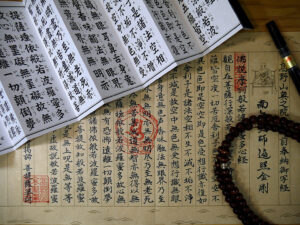
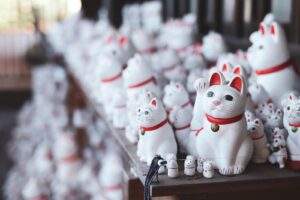
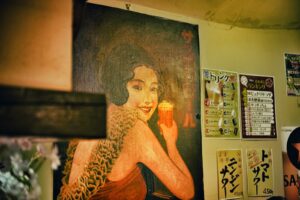

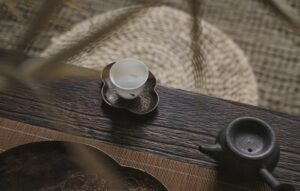
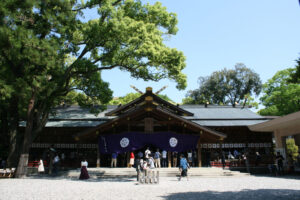
 Instagram
Instagram